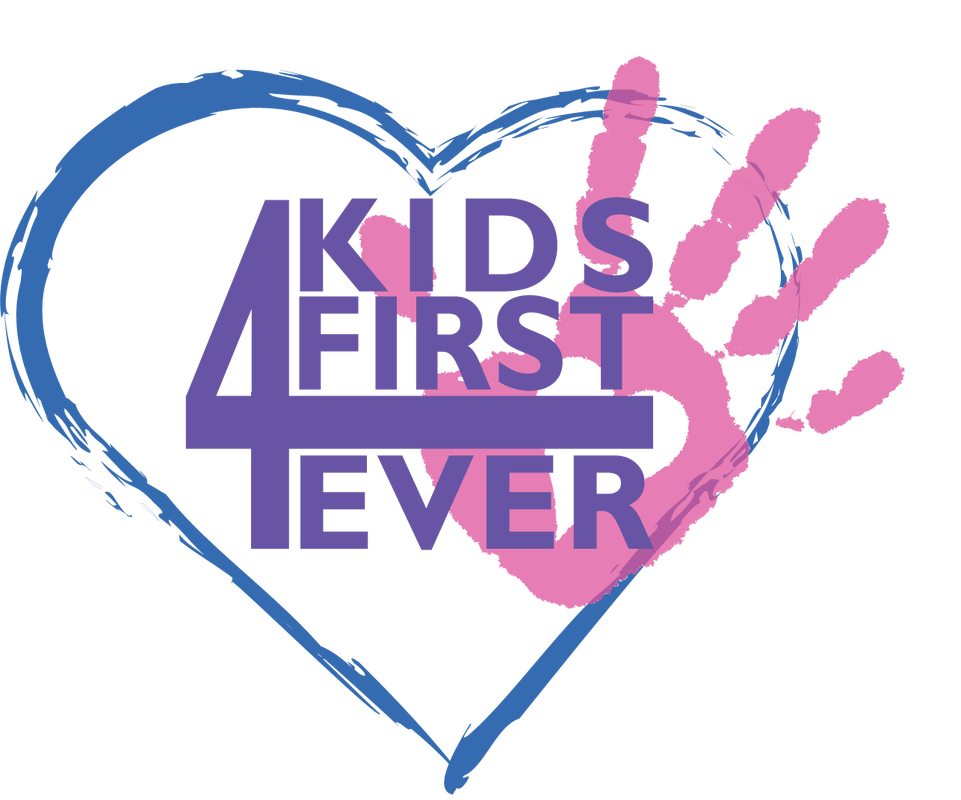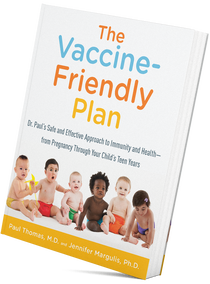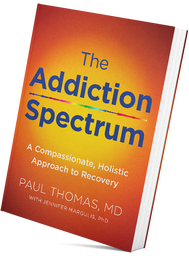PDF:Text:Dr. Paul 0:00
Dr. Paul, welcome to against the wind doctors in science under fire. Today's show takes a slightly different tone. And it's hugely important to pay attention to this one, we are honoring anyone who's suffered a loss, but specifically doing so by interviewing Megan paralogous, who lost not only her mother in law a couple years ago, but then her husband, the father of her two children, basically the hospital system protocols designed for COVID and the inability to change those sorts of protocols, when you actually have information that would be helpful. And Didi Hoover of kids first forever, also gets the interviewer in a heart to heart conversation, kind of a mom to mom interaction that will absolutely melt your heart. Bernadette closes us out with a very interesting presentation about a couple organizations. She's been researching the adult vaccine access coalition, that name tells you in the name, it's all about vaccine access. And then the association of immunization managers, and they're all intertwined with pharma, the big medical institutions, government, public health, even right down to city managers to do one thing, get more vaccines into more people. They're pushing that agenda and that agenda alone. And when you understand that, you start to see what follow the money, it makes sense. Enjoy the show. Dr. Paul, coming to you from the heart. Today's from the heart is specific to today's show. It's about loss. It is not easy to lose a husband, for kids to lose their dad to lose the father to your children. Especially when it could have been prevented. You're going to witness an interview two interviews today of a woman who went to every length in her power to advocate for her husband who was hospitalized for COVID. And what a struggle. And this one didn't have a happy ending. My heart aches in a way I can't describe. You're just I'm left speechless. With goosebumps how amazing and powerful in the face of such adversity. This mom stood strong stood strong for her kids was there for her husband. And I tell you, there has to be a takeaway for us from this. This is going to touch your heart, open your heart for this particular session. And then realize at the end, that we do have rights, you have the right to speak on behalf of your loved one if they get in a similar situation. And at least we can't change what happened. But we can be prepared for the future. So this doesn't have to happen again. Welcome Megan Perales, you have an incredible story, I got to hear it, I knew you before you went through this incredible journey you went through with your husband, you actually lost your mother in law to COVID and remdesivir, a couple of years ago, and then had to relive it in a horrendous journey with your own husband a little less than a year ago, and ended up losing an incredible battle. I can't believe how powerful you are and how hard you fought. And so you know, when when things don't always turn out quite like we would want obviously, I mean, who wants to lose their husband and father of their two children, you have? Patrick, your husband, you were you dated for five years married for almost 17, you've got two beautiful children, I've got to meet them. And you know, your background is in massage therapy, but you really focused on your kids for the past eight years. But let's sort of walk through the journey. I know this is painful to do. But I think it'll be helpful to other people to hear the story because, sadly, many of our hospitals even today, I mean, you went through this a little less than a year ago, it was worse, maybe back then. But I'm still hearing these same stories where hospitals are not listening to their patients, or their patients loved ones. They are not implementing treatments that we know work for COVID. And they are just following protocols that are dangerous and often harmful and fatal. So your story I think will wake people up to empower them with the fact that you know, you've got to fight for your loved ones. And I'll be very interested to hear what you have to say. But just I know in the beginning. Tell us how it all started how you ended up in the hospital with Patrick. Meagan Peralis 4:52 So he became ill the second day after Christmas and then we just thought well he's Just sick. He laid in bed for quite a while. But fast forward to January 2, he took a PCR test which I'm not a believer in them, but he took it to go back to work. And he had said he had COVID. So he couldn't go back to work. So he went back to bed. And I within like two hours of that I went in to check his oxygen and it was a 65. Looking back, you know, you think about things you regret, I wish I would have been checking him more, but you can't change that. So I got him up out of bed. I said, we're going to the hospital, or when Yeah, I was going to drive him to the hospital, I get him to the couch, and it had dipped to 55 within like a 10 minute timeframe. So I said, No, I'm calling 911. And all I wanted was him to get oxygen. I knew I didn't want him at the hospital. I just I had a really bad feeling about it. And just because of my mother in law and what she went through, I knew remdesivir was most likely going to be administered. And so I they came and got him they put oxygen on he was able to he was coherent in the ambulance. They started giving him some things in the ambulance to treat his anxiety, I guess, probably because he didn't know what was going on. So when he got to the hospital, I immediately got there right away when he got there. And I told the the nurse's station, I don't want him on remdesivir or I don't want them on a ventilator. Please let the doctors know, let everybody know I will write it down. I will you know, don't don't do that. It's not Dr. Paul 6:43 to do no to ask for that. Because I agree with you. But gosh, a year ago and the it wasn't common knowledge for most people. How did you know? Meagan Peralis 6:54 Well, because I had been keeping up on a lot of things. One One thing was when his before his mother in law went into or before my mother in law went into the hospital. I had been watching videos I watched the video Doctor artists did on his father in law. And that was before she went in. And so when she went in, I was kind of nervous. I was like, I don't know, is this gonna happen? And it did. Like they gave it to her. They put her on the BiPAP. She didn't get the ventilator. But she was also not in great shape going in, she had like a blood cancer. And so like, you know, they did give her that and she was gone within short order, like within three days. So I started doing more research throughout the year, both Patrick and I, and I saw some not good things. It's shut your kidneys down like it does. It's not good. So that's why we were doing the treatments that we knew to do. You know, the math protocols and all that. So when, you know, I told them don't do that. She made she reassured me we're not going to put him on that. Okay, great. So I went home. And then the next morning, I'm sitting in the parking lot of the hospital for six hours with my friend. And Patrick texts me and he's like, Megan, I'm really hungry. They haven't given me any water or food for since last. I mean, they haven't given me anything. And it's 11am at this point. Wow. And we get on the phone with him. When we asked him, can he get something like why isn't he getting any food and water and the nurse didn't know why like, Dr. Paul 8:36 it's a common thing I'm hearing a lot people get hospitalized for COVID Are their nutrition is ignored. We know there's an added risk of remdesivir with dehydration, and that shuts down the kidneys. Yep. And I understand you went on to discover that they indeed had given him remdesivir You got access to looking at the chart. So despite all your efforts to make sure he didn't get it, he still got it. Yep. Meagan Peralis 9:03 And they hid it from me. And they didn't want me to know. And they, in fact, I took a picture of the chart because they let me go in that day with I probably had COVID Because I'm married to him. So like, you know, let me go in there. And I took a picture of the chart and I asked him if I can have you know if I can take picture because they started yelling at me and they said erase that picture. I wouldn't, I didn't. So he he's like, yeah, you can look at my chart and then they shut it down. So like if you don't have anything to hide, why are you doing that? Dr. Paul 9:34 So you went on to actually transfer hospitals, which I thought was very bold. Yeah. What went into that decision making? And then let's talk about what happened at the next hospital. Meagan Peralis 9:46 Yeah, so I told him that day when I when I confronted them about the remdesivir we had already been talking to nurses and people outside the hospital that are out Yeah, outside the hospital that had oxygen and we had all the medications and everything. And I told him in front of these nurses, I'm getting you out on ama or hospice. And we're getting out here. So he, they said he won't make it past the parking lot. And because of oxygen, but he he had like 8591. I'm standing there. And so I found out later that they were pretty much they weren't letting him go to the other hospital because I put the request in. They wouldn't let him they said, No, we're keeping him. And I know why. So I had to hire a lawyer, I hired a lawyer to get them transferred to the hospital that I wanted him at. Because I felt like they might have more treatments or be more open to more of my suggestions, but they were not. Dr. Paul 10:51 Yeah, the the hospitals, almost universally to, to a name. They're all following the same broken protocols of remdesivir and intubation, or a disease that's microvascular and clotting. It's inflammatory and clotting disease. We know what to do. And the tragic part is you knew what to do back then. But how do you get a doctor to listen? Right? There, they kept him. So at some point, he ended up intubated. Right? Meagan Peralis 11:23 Yeah, he did he, the day after I went in and told them, I'm getting him out on ama that night, they told, Well, it's not in his charts, but they told him that he almost coded, and which I feel like the remdesivir was making him worse. And so it was harder for him to breathe, of course, you know, he wants to get better. And they're telling him well, if you get on the ventilator, you're going to get better. And at that point, the next day, they pretty much told him that if you get on this, that you'll you'll be able to get off of it in short order, because you're young and get your give your lungs a chance to rest. And and so he he wanted to do that, because they felt like he would get better. They were Dr. Paul 12:07 telling him that. So they put them on the ventilator at the first hospital before transfer. Yeah, yeah. Okay. And I know one of the things that makes it so I think dangerous with the intubation protocols, is that the patients have to be heavily sedated, right, so you're no longer in control of your own faculties when you're basically under anesthesia. I know they use propofol a lot, and probably some other narcotics that know that. Oh, yeah. So I mean, you can knock a person out and just take them close to death, but you keep them calm, so they're not fighting. I have been told I've never been intubated. Other than one surgery, but having a tube down your windpipe is a very irritating. You know, it's you cannot do it when you're conscious. Right. So, basically, they put him under and kept him under. And that was back. early January, right? Yes. And he Meagan Peralis 13:08 they started pumping them full of all that the right from the get go. And then he transferred Dr. Paul 13:12 to the other hospital. I think I remember in the story, he got dialysis like pretty quickly. Meagan Peralis 13:18 Yeah, he got it within two days of being at the other hospital. Yeah. Dr. Paul 13:22 So remdesivir had already done what it does shutting down his kidneys. Yep. Wow. And did he have to stay on dialysis the whole time? Yep. Oh, my goodness. Meagan Peralis 13:33 Yeah. They had him on CRT what you know, is the, they would switch him from different dialysis. Like, from the fast one to the slow, one fast one slow one. And I can never figure out why. But they they did that. And then they chant transferred his dialysis line four times. One time it was really infected. And one of the nurses was talking to another nurse. And she was like, oh, I should have been looking. I should have been watching this more closely. So she admitted that they weren't really, you know, doing what they probably should have been doing. But Dr. Paul 14:09 I think was Was he in that second hospital for over a month? Meagan Peralis 14:12 Yeah, yes. There for 4847 days. Dr. Paul 14:19 Wow. That's, that's just unreal. And I one thing I was just amazed at is and this is why I think you're just such a hero. You actually got to go on rounds. I've never heard of a parent getting to go on rounds. You had to push for that. Meagan Peralis 14:37 I actually did it. It was it was crazy. Like they offered. Dr. Paul 14:41 Wow. Yeah. Kudos to the hospital for that. You know, I remember my hospital days and we would do rounds I used to teach residents and medical students. And I mean, you've got sometimes you've got 1214 20 patients to round on and you got a maximum of a couple hours to do it and you're going into each patient's room and you're quickly trying to discern what's going on, make some quick decisions on to the next one, where you the, in this case, you're the wife, if you were dealing with a kid, it'd be the parent, if you can be there at rounds, you'll pick up on things which I think you did several times where they were missing some important details like he had had an allergic reaction to vancomycin, but they were gonna give him IV vancomycin. Yep. So I Meagan Peralis 15:23 told them that he was allergic to it, and then they took them off of it. And then later they put him back on it. Wow. Yeah, nobody reacted in the hospital to it to wow. Dr. Paul 15:36 And I can see how that can happen. Having been in that hospital environment where you're super busy, you've got a ton of patients, you don't remember from one room to the next, the fine details of what's going on? And this is why I would say if at all possible, and it was not possible for you because you had two kids to care for at home. Stay in the hospital with your person, right? Yeah. Because once you're gone, and I think you witnessed this so many times, he would be fine when he was with you during the day. And then what happened at night. Meagan Peralis 16:04 It he would dip he would get really bad and I wake up in the morning, I look at his chart. Like what happened. Dr. Paul 16:11 I think towards the end, I think it was like around February 21. He had was it you that touched his stomach or one of the doctors did and he winced in pain. And that was very different. Obviously he for a person who's sedated. Meagan Peralis 16:25 Right? Well, he also I've never mentioned in their interview, he got a trach he got put on a tree. So he was on his trach when they pushed on his stomach, like he was getting better. We thought okay, his PEEP is going up. He's, he's getting out of here. You know, we're talking about in fact, the doctor started start talking about aftercare, and so it was looking good. And then they pushed on his stomach. And that's when he went yeah, it was the last expression I ever saw him do. Dr. Paul 16:58 Ended up they diagnosed diverticulitis, which is an infection of the in the colon or intestines. He had surgery, right? You did? And then antibiotics. Wow. Talk about the end how it went for you. Meagan Peralis 17:14 Um, well, once they put him on bang for my Essen again, I started to feel like things were getting out of control. Because before that, I was like, he's on his trach he's coming out, right. So once they put him on making medicine, I felt like this, he's not going to do well with that his body is poor body is fighting, and they're not allowing him to fight. And so I just I felt like I was spinning out of control. So but I didn't give up. I still was like, you know, okay, he got his surgery they had they gave him a surgery so that he will he can get out so he can live. So anyways, so the day that he passed away, I got a phone call. Because the day before him, he was fine. I went in for a visit, he was fine. That night, I got a phone call, you might want to come in. I was like, I'm not I didn't want to go. But then I had a friend say I don't want you to regret not going, you know, and I would want him to be alone. And I just didn't want to admit that, that he would die Dr. Paul 18:30 so hard. Meagan Peralis 18:34 Um, so I went to the hospital and we were there for like an hour, he was still there. And I just prayed and I talked to him and I hugged him, like laid on his chest to hear his heartbeat because that was always a comfort to me. And, Bernadette Pajer 18:52 um, and then they just Meagan Peralis 18:57 passed away. Just gone. But I don't know. There's some other things that happened, but I don't know if I feel comfortable talking about it right now. But um, yeah. It's hard. Dr. Paul 19:19 I'm really glad you were there. Me too. I think you know that you had that skin to skin and on his chest. And Meagan Peralis 19:29 I pulled my mask off for the first time in what 50 For however long I had been in the hospital, I said screw it and I kissed his forehead and I held his head. You know, I just was right there with him. Dr. Paul 19:41 Good for you. I mean, that's the other part about this whole hospital protocols around COVID that are just insane. I mean, you're the wife, you clearly have had the same exposure he's had if you've had COVID You've overcome it already. You don't need a mask in his room. Period, right? And yet could because the mask sort of, there's something about looking at your face? And you'd have, you know, Oh, I'm so sorry. It's just such a tragic story. Do you feel like throughout all of this, they were treating symptoms or that they heard your requests as a patient? How did that go? Meagan Peralis 20:23 Not really. I mean, sometimes they would kind of implement what I was asking for I asked for vitamin C, D, and zinc, they would not give Z or SC, which was one of the biggest ones that you need. They came a little bit of d and z, and then they would take it away and then bring it back when I'd asked for it. You know, that was pretty much the and then taken away vancomycin, but then they gave it back to him, you know, that was pretty much all they did for me, like everything else. They were on a mission, like they have their they have their protocol, and we're not we're not diverting from it, that you, we don't care that, you know, that all these other things have been proven to help. And you're asking for him, but we're not going to No, no, we're not going to give them to him. Dr. Paul 21:11 Yeah. You know, back then even the math plus protocols were all available online. And this is, this is from critical care doctors who had figured out ways to get people better, right. And yet, we could not I had, I had another person in this same situation. And I mean, the most I got them to do was a dose of vitamin D, I made it a big one, and a dose or little mini doses of vitamin C. But you know, they weren't doing proper dosing of steroids. They weren't doing ivermectin at all right, which could have been very, very, very helpful, if not lifesaving. Did you ever feel like they were concerned about Patrick's getting healthy? Meagan Peralis 22:00 Not really, because the second day he went in, they I asked them what they were doing to treat him and they wouldn't tell me. They, it just, you know, and then not giving him food and water. You know? I just didn't even they were telling me he was gonna die. The second day, he went in telling me and him, you're gonna die? What are you doing for him to help him not die? Yeah. So to me, that shows that they, you know, they, if you want somebody get healthy, you're going to tell me what you're given him. And you're going to be you know, being very transparent about that. So that. Yeah, Dr. Paul 22:45 yeah. Do you? Do you feel like I don't recall what yours or Patrick's vaccine status was? But um, do you feel like you were treated differently because of your choices about vaccines? Meagan Peralis 22:58 Yeah, we he was not. And that second day, he was in there. I was on the phone with one of the nurses. And she's she was like, I don't know how it came up. But she said, you would think by now, it's been two years that you would get a clue, you know, get with the vaccine. And she was really rude about it. And I said, Excuse me, did you just say that? And she didn't like that. I asked her that. And she actually ended up hanging up on me. So, yeah, it was not Dr. Paul 23:37 good. Yeah, I hear that over and over again, there's just a fear of even going to the hospital if you haven't taken a vaccine for COVID or, and you're sick with COVID. Or if you are less than fully vaccinated on the childhood schedule for kids, parents being so fearful about going to the hospital because they guess they just get treated differently. Yeah. Yeah. That speaks to me, not having done my job well enough, by the way, because I'm on a mission to educate our world. Doctors, especially if you're listening, there's so much data coming out on the benefits of being less or not vaccinated. So we just have to start really looking at all health outcomes as relates to vaccines. My goodness, how has this affected you? You used to live in Oregon, I understand you left the state how how has this affected you and your kids? Meagan Peralis 24:32 Um, well, for me, I lost the love of my life. My you know, my forever person. I, I had to move because it was something that I needed to do in order to heal. Because everywhere I turn, I see him. I've only been with him for 21 years like he's part of me. And so for my kids too, I needed to be able to be with them and not feel like I'm constantly hurting. And so he wanted to watch my kid he wanted to watch his kids grow up he wanted, you know, to watch them turn into teenagers and and be there for them when they get married or, you know, he was excited he would talk about it. Dr. Paul 25:25 He was such a great dad Meagan Peralis 25:26 such a he was a good dad, I know you. You met him? Dr. Paul 25:31 I met him. When I when I was reminded when you sent me the picture of the two of you like, Oh, I know him. He's such a great guy. I mean, just you can tell, you can tell a person's spirit. And wow, what how are the kids doing? Meagan Peralis 25:45 Um, we have the way my oldest 11 year old he has his moments. Of course, he was the only child for seven years before we had our other one. In, he remembers his dad as doting on him all the time. You know, he remembers a lot of the things that, you know, Patrick would do with him. And we went to our storage unit the other day, in fact, and we were looking through our Christmas stuff. And Wyatt was looking through a box and he turned to me and he goes, This isn't fair. And I was like, No, it's no. But you know, you have to do what's necessary to move on, though, because you can't change it, you know? Yeah. But we can always honor him. And we do. We, before I left Oregon, and we spread his ashes in one of the beautiful parks that are in Lake Oswego. And we went back for Thanksgiving, and we just poured a bunch of beautiful leaves all over the water, and we just prayed and listen to music. And, um, you know, we honor him as a fighter, too. Dr. Paul 26:59 Yeah, absolutely. Well, that is so beautiful. Thank you so much for sharing your pain with the world. And is my hope and I know yours, too, that this can somehow help someone else. But to put it in your own words. What would you like to tell anybody else that's going through something like this? Meagan Peralis 27:23 I'm like going through the hospital right now. Or like where they lost their, their loved one. Dr. Paul 27:29 Those Those are the two biggies. Sure, pick, pick one or both? Meagan Peralis 27:33 Well, first of all, don't go to the hospital. Just don't figure out ways to treat yourself at home for COVID You know, a lot of is flu symptoms now, like just don't, there's so many ways to connect with like frontline doctors or my free doctor or, you know, but you know, get a lot of oxygen, find ways to do. Just, that's the main thing. And then, if you do need to go to the hospital, make sure that you are very vocal and clear. And don't leave them if you can. And then if you know, if you do lose your loved one, you know, make sure that you connect with a good support group, I have a great support group. I've connected with many people who have gone through this. And so we're able to, you know, cut relate, we, you know, nobody else knows around me besides these women and some men, what you're going through, so we feel the pain together, and we help each other and we're like lifelong friends. So just, if you need help, if you I know where to find, you know, I can connect these anybody with any of these groups if you need it. Dr. Paul 28:59 I'm here Megan. Oh my gosh, I cannot thank you enough for coming on this show. Being vulnerable and and being willing to share your story. Meagan Peralis 29:08 Absolutely. Thank you so much, Dr. Paul. Dr. Paul 29:17 So folks, Welcome to a segment we're calling kids first forever. Didi Hoover is going to do an interview one of the things she does as a part of kids first is mom to mom coaching. She also coaches children. And there's lots more to it. She's going to be interviewing Megan poor Alice who underwent a horrendous loss. And so you'll learn more about that. DeeDee Hoover LMT, PMT, CCT 29:38 So hey, everyone, thanks for joining us today. I'm Didi Hoover and I am one of the co founders with Dr. Paul Thomas with kids first forever. And I know Megan personally, Megan paralysis and I'm a body worker here in Dr. Paul's clinic and I worked on her son. An amazing amazing was then 10 year old now 11 year old and credible kid and I got to see just an amazingness as you as a mom. So Megan, I just have some questions. And the reason that I wanted to interview you is I work with a lot of moms. And I would love to think that your story is the last one will ever hear. But unfortunately, I don't know that that's the truth. And my hope is, and I know by the hope of Dr. Paul doing your interview is that it doesn't happen to somebody else. And so if another mom or another dad, or anyone is in the position that you were in, and you guys will hear the full interview on against the one. If they're in that position, I just want to ask you some questions on what maybe what support you can offer now to another mom. So what I think we, we hear your whole story. And when I heard your whole story, what we forget is that you're a mom of two young kids and their home. So what during that time and taking care of them and I know a couple of kiddos appointments with me. We we had to change them and move them sometimes because you had to be at the hospital. And yet you'd show up even with what you were going through with your husband in the hospital. And here's his bright, beautiful Mom's so present with her child. I admired that. I think I think what was hard for me was because you looked so amazing. And you did such a great job of parenting through that, that I didn't know what you were going through. And there's times I was telling doc that I feel like I failed you. I wasn't there for you. So my apologies. But the main thing from this interview, what I want to know is what what did you have in place at home, what allowed you to be such an incredible mom during that time. Meagan Peralis 31:55 I have an amazing support system. I have my mom and my stepdad and several lots of friends and family that just were there every day for me. Every day. I had friends helping me with my four year old, taking him and watching him while he went to the hospital every day. Anybody and everybody that I know, they were like, You need something you let us know. And they were right there for me. They were there for me in prayer. They were there for me, physically, just helping take care of my house, you know, sending me housekeepers, and, you know, just being there emotionally for me. Because they loved me and they love my, my husband, you know, and they wanted him to get better. And they love my kids. So that's why I was able to be so strong through it all because I had everybody behind me helping me stand up. DeeDee Hoover LMT, PMT, CCT 33:01 Yeah, and I, you know, I think that's the thing, like I look back and I think about it, and you know what, we use the word hero a lot, and how you were and what you went through and how you made it was so heroic in so many ways, because there's, you could have, you could have failed, you could have faltered. And I've heard you and I know you say for other moms out there, when you're going through something, I feel like you feel like there might have been a piece of failure in there. Because the outcome wasn't what we wanted. But man did you you didn't fail your kids. You were there. And you even afterwards you did things, I got to work on him after this whole process. And I just was like, Wow, you are amazing. And again, I don't know that I really noticed because you were so strong. So again, so for moms that are out there and may go through this or even dads or anyone that support system I'm thinking is key that you have. Also my guess is after hearing your talk and just knowing you that do you feel like the love you have? Had I don't say had the love you have for your husband? That was that part of that strength? Yeah, to keep going to never quit to fight to get lawyers. Is was that a big piece of that? Yeah, because the last thing he said to me was Meagan Peralis 34:30 I gotta get better. So I come home to my boys. So I was doing everything I could so that he can come home to his boys because they were his life. And I would do anything for him because he would take a bullet for me. And he had he I mean he literally not literally but like he stood in the gap for me on so many occasions. He was my protector. And when he first passed away, that was hard. That part was really hard. Because now I I don't have that except God as my protector. So adjusting to all that is and the kids to like, why my oldest? He he was scared at first, like, How's mom gonna protect me? And I told him, I will, I will at all costs, you know, like I, I'm much stronger now. And I think going through the process has taught me, I am a strong person, and I can take care of my kids even more now. DeeDee Hoover LMT, PMT, CCT 35:43 Yeah, because Don't you feel like you still have your husband for that too? Because I know. So I didn't, I didn't mention why it's named because I didn't know if you want to say it or not. That's why it is such an incredible kid. I had a session with Wyatt after and I remember asking him I don't know if you remember this. But I remember asking him and talking to him, because you said I could ask them questions and talk to him. And I, we talked about, he talked about how he felt about his dad. And what was great was to hear him talk so lovingly and so passionately, but also feel so strong. So I realized that that's part of that support system, too, is all those people were there for your children specifically. And you put in places there's a great program, I think here I forget the name of it. That's an Oregon that helps children with loss. And I think you making sure all those things took place. When I got to talk to him. It's like he, you know, he got to talk about when that he did get to say, you know, talk to his dad by video and that. I remember at the end, he's like, Well, I got my mom. And I said, Yeah, and I said and he said he feels his dad that that that will always be there. We have God as our Protector. But you all for me. I feel like you have this angel up there going, Megan, you've got it every single day. Do you Meagan Peralis 36:59 feel that? Yes, they do. They do. DeeDee Hoover LMT, PMT, CCT 37:04 So I'm going to keep this short, because I can tell I need to move on. So that DOC has time to interview. But one of my questions to you is if another mom gets into theirs, is there any one piece of advice that you feel like you could share that if you Was there anything you do differently as far as being a mom and providing support for your kids and being there for your husband also. Meagan Peralis 37:29 I would just say don't give up. Don't feel like you can't do it. Because it may make feel like it's impossible. But it's even if you are alone, and you don't have very many people to support you or whatnot. I guess just really dig deep and grasp like that. That strength that you have and know that you can do it is possible to get through like Like right now I'm not working and I'm thinking I need to go get a job like I have I haven't worked outside the home for eight years. And so I do have a background of massage. But you know, that's one of my things is like, how am I going to do that and take care of my kids, you know, but it's just the process. Just getting through that process getting taking every day as it is and not rushing, and the answers will come and they have been coming like I moved out of state so that for all kinds of reasons. But you know, just don't give up right DeeDee Hoover LMT, PMT, CCT 38:43 now. And as you know, I'm a massage therapist. And I remember making it through some tough times and having a child too. So if you ever want mom to mom coaching I'm here for you, I can help you with that. Megan again, thanks for showing your heart and again, I moving forward if you ever need anything, I'm here for you. Meagan Peralis 39:03 Thank you Dr. Paul 39:11 Welcome back, Bernadette two against the wind. I am excited for this segment you are going to take us on a journey of entities that are highly influenced by pharmaceutical companies and show us all the behind the scenes influences that are affecting public health and our state boards. Yeah, Bernadette Pajer 39:31 yes, exactly. So I thought I knew all of the coalition's and entities but you know I keep coming across larger, better ones. Kind of crazy. What's important. Dr. Paul is the mindset of all of the entities I'm about to show you who are part of the adult vaccine access coalition. Their mindset is that more vaccination is better A period. Correct more people at more ages, more shots. There's no discussion of negative outcomes, unintended consequences, risks. Dr. Paul 40:13 Yeah. Or even if it's a good idea, I was invited to an HPV conference and they invited me as an expert as a local doctor in the community. When I got there, it was all about increasing access, period. Yeah, it was like it had already been decided we're doing it. We're gonna get this into as many people as we can. How do we make that happen? Right? Well, why don't we talk about whether it's a good idea or not? Bernadette Pajer 40:35 Right, exactly. You know, there is none of that rational discussion at all. And now look at their membership, Dr. Paul. So here, I'll show you some of the Logos because they will jump out at you. We've got the American Academy of Family Physicians, we've got ame, the association immunization manager, so I'll explain more about them later, we've got the GlaxoSmithKline Hepatitis B Foundation, there's so many organizations that they actually put them on a list this way where we can see, I'll kind of scroll through and show you Dr. Paul 41:06 how almost every medical association, all the pharmaceutical companies, Bernadette Pajer 41:12 yeah. And if you click on each of these, what you find is, is another big web of associations that further push out, and it's just it goes on and on and on. And all of these things have all of these entities and the agencies and the interconnections, they all have budgets, and they all have one goal in mind, increase vaccinations across all ages, and stages of life. And this is one, yeah, they believe that the Almighty that scene needs to go. So this is what I intend to do. In both Washington and Tennessee, where I'm active, and I'm encouraging others to maybe give this campaign a try. How do we display to our elected officials and our our everybody involved that this is a problem? How do you show that? Well, one way you can do is to create like giant 24 by 36, poster boards, and you put on it, adult vaccine access coalition. And then you put on make a snapshot of some of the logos and then indicate you took a snapshot off this page, so you don't get in trouble for using somebody's logo, but just show look at all these member organizations that belong to this, show them the list. And another one that you can do separately, actually, another three that are really important, are the people that are directly paid by your tax dollars in your state to run immunization department. So we're going to go to aim the association of immunization managers. So the head of every single immunization part department in the United States belongs to this organization. It is I will show you is a collaboration with a pharmaceutical industry. They have Platinum members, their Platinum Dr. Paul 43:21 members and all those pharma companies. Bernadette Pajer 43:24 Yes, they're all there. And here's Dr. Paul 43:26 the folks who are advising our public health officials. I wonder what they're telling them to do? Bernadette Pajer 43:31 Yes. And then Maderna is in their gold membership. And then in their silver membership, we have all the others and everybody associated and then we have Bronze members, right? So and the level of that you're seeing you know, the platinum and gold, that's the level of money that they are funding. They have a memo of understanding that their member memo of understanding is a collaboration that says they will share policy information with each other do this go back to my list to the adult vaccine access coalition. Dr. Paul 44:09 That's how everybody is in step with each other. Bernadette Pajer 44:11 They're completely unlocked. They have annual meetings together. But then there are some other organizations here that are a concern. We have got, well, the American immunization registry Association, the people running that work and all the health departments and all the states running the registry, because what they want is every everybody's vaccination status in a registry tied together accessible, and then tied to the global Meagan Peralis 44:42 network. Dr. Paul 44:43 Right there. We were sold this idea as a great way of tracking immunizations because knowing where your status is, there are some potential benefits so you don't over vaccinate, but on the other hand, the huge looming major concern on private See vaccine passports I mean, when you give global entities access to your personal health data, and they can use that to prevent you from getting on an airplane, or in some countries already, you can't go to a grocery store. This is getting real big brother ish. Bernadette Pajer 45:15 It is it's very, very concerning. But and again, you know, we have the people who are doing this don't see the nefarious purposes, I don't believe that most people are evil, I believe they're caught up in an evil system, and not understanding how it's being used. So I just encourage education, with some patience. But they've got to know we've got to stop this. But so then let's also look, though, look at another group that belongs to the Association of State and Territorial Health Officials. So you've some states have commissioners of health, or health directors, that sort of thing there, they lead your state, they're over your Department of Health. They all belong to this ask though, group. Okay. And then there's another group down here, the National Association. So it's called Nacho County and City Health Officials. So all in every city in county that has like a Health Association, a health board, that you know, work for your county, they belong to this organization that belongs to the adult vaccine access coalition. And as part of this whole systemic fabric of an amount of money, Dr. Paul is staggering. Dr. Paul 46:33 Yeah, some of us. You've illustrated this tangled web that includes everybody in a decision making position, from the city to the county to the state. It's hard. It's horrifying. Thank you for bringing that to our viewers attention. Folks. You have to you have to be aware. I mean, you've heard this a long time, old old saying follow the money. The money is everywhere, pushing one agenda, which is simply more vaccines to more people more often. It's a profit driven agenda. Yeah. And sadly, they've long ago abandoned actually looking at data. And actually looking at health outcomes. If you look at all health outcomes, the few studies that have been done, it's astounding how dangerous vaccines are, but nobody's doing that. And the way they get them approved just looks at a few little things. They don't look for very long, they don't have a proper placebo. And bingo, they say they're safe. So we've got to undo a massive system that you're pointing out here. Bernadette Pajer 47:37 Yeah. And some hope, though, for viewers, first of all, the very fact that it takes that much money and that much coordination and organization, and they still fear, the people who are speaking the truth shows that the truth is so very powerful. And the truth is on our side, you know, it doesn't take that much effort to distribute that, oh, you need to eat healthy foods to live well, right? You don't see coalitions of billions of dollars, telling people to eat more broccoli, right? It's not happening. I wish it would, we need to build our own coalition of health that's like this, but we have power. And so take heart, go to this website, the adult vaccine access coalition, make posters printed out, make them very visible. Every one of those entities has lobbyists, you need to show up in the district offices of your elected officials, in your state capitals, at Board of Health meetings, county and state you need to show up everywhere and show we see how the tangle of pharma and big money and all of you pushing toward one goal increase vaccination. And we're aware of it. And we don't support it. And this is what you need to know about the dangers of these products. But just bringing that to attention, and I know that a lot of legislators will be shocked by what they see. They have no idea. Dr. Paul 49:15 Yeah, I think this highlights the importance of the vaccine vaccine data. And there's more and more coming out folks. And that's that's really the foundation of being able to go to somebody and say well, hey look, are you aware of this? You've got all these massive connections in funding that are simply pushing a dangerous product, but they don't know it's dangerous. See, they're all they've already bought the fact that they're safe and effective and that's all they speak so then they don't care that there's all these coalition's we're doing good for the world, but when they realize they're doing harm now these coalition's are put in the light, you shine a bright light on them, and it's it's virtually evil. Bernadette Pajer 49:51 Right? And what you never present a problem without a solution. What is the solution? The solution is maintaining good health and early treatment protocols, the sort of what we learned with COVID. Of course, there's going to be censoring of the early treatment protocols, right? But that has to rise up and take a place of respect and prominence and public health at all levels. Public health officials should not be afraid to say, go talk to your doctor to make sure you've got optimal vitamin D levels to see what level of zinc you should be taking to ensure that you know, you've got your early treatment kit on hand, which includes ivermectin, Dr. Paul 50:31 you know, even for influenza and RSV, folks, believe it or not, it's helpful for those things as well. So we'll wrap it up with just my thought for you is remember that it's you can be in charge of your own health. You don't need a doctor for most things that will keep you healthy. And Bernadette, you get the last word. Bernadette Pajer 50:53 Be the news. Have hope. Have faith know that your voice will make a difference. Don't give up. Stay loud, stay peaceful, and educate. Dr. Paul 51:07 Thank you, Bernadette. Thank you Dr. Paul, thanks for watching the show. Please visit doctors and science.com There you can access our members only section. This show is member supported. We don't have to take sponsors. We don't have to have anybody controlling the content of our show. This is a huge perk most people aren't aware of your membership gives you access to my eBooks, transcripts of every show PowerPoints from talks I'm giving around the country and live bonus peeks at behind the scenes work. We're doing my off the cuff thoughts and reviews on current events. Your support makes all this possible. Thank you. Help me spread the truth and share this on social media and with your friends at doctors and science.com. I look forward to running with you against the wind. Go to our website doctors and science.com Sign up. Donate if you can. And let's make this the weekly show the nation has been waiting for. I'm Dr. Paul Transcribed by https://otter.ai Support Dr. Paul:TAKE ADVANTAGE OF DR PAUL'S 25% PROFESSIONAL DISCOUNT APPLIED AT CHECKOUT
|
|
Dr. Paul's Safe and Effective Approach to Immunity and Health- from Pregnancy Through Your Child's Teen Years.
The Vaccine-Friendly Plan is a place to start researching your decision on whether or not to vaccinate according to the CDC recommendations.
|
The Vaccine-Friendly Plan
Dr. Paul's book, The Vaccine-Friendly Plan, may not align with his latest findings on the Vaxxed-Unvaxxed data. However, it still serves as a valuable tool for those who follow the CDC schedule. The book offers peer-reviewed information encouraging parents and guardians to think critically about vaccine decisions. While Dr. Paul cautions against following the Vaccine-Friendly Plan, it can still be a helpful resource for those seeking a starting point for their vaccine journey.
Dr. Paul's research: https://www.mdpi.com/1660-4601/17/22/8674/pdf, though wrongfully retracted as shown in this study: Revisiting Excess Diagnoses of Illnesses and Conditions in Children Whose Parents Provided Informed Permission to Vaccinate clearly shows that those children who were not vaccinated were much healthier than those who followed the Vaccine-Friendly Plan. |
Don't stop there. Watch show's like: With the Wind: SCIENCE Revealed, The HighWire, & CHD-TV | Childrens Health Defense
The Addiction Spectrum
Opiate addiction is the single most significant public health crisis facing Americans—it affects over 2 million people and kills 115 of them every day.
|
Share with your Friends & Family
Comments are closed.
Archives
July 2024
June 2024
May 2024
April 2024
March 2024
February 2024
January 2024
November 2023
October 2023
September 2023
August 2023
June 2023
May 2023
April 2023
March 2023
February 2023
January 2023
December 2022
November 2022
October 2022
September 2022
August 2022
July 2022
June 2022
May 2022
April 2022
March 2022
February 2022
January 2022
December 2021
November 2021
October 2021
September 2021
August 2021
July 2021
June 2021
May 2021
April 2021
March 2021
February 2021











 RSS Feed
RSS Feed
